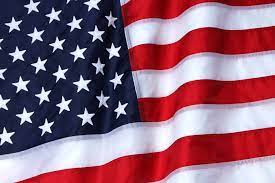Is Online Poker Legal in the USA?
The situation around poker online in America is a topic that is sure to remain controversial, no matter the outcome of attempts to make loophole open legislation. attempt to make loophole open legislation, no matter how motivated.
The Unlawful Internet Gambling Enforcement Act a.k.a. the UIGEA ishorses the ability of US banks and financial institutions to do business with gambling sites within the American borders. The bill, which was passed by Congress in 2006 after a period of debate and without too much fanfare, made things worse for poker players. Poker rooms that received injunctions from the US Department of Justice to prevent money transfer to and from gaming sites were given a 4 month time limit to take action, a situation that many viewed as being unfavorable.
The gaming industry was certainly not the only industry that came out of the UIGEA. Many smaller gambling and card room operators felt that the law had just imposed a greater burden on them and were barely breaking even. The truth, however, is that many of these smaller, less regulated gambling outfits were just popping up to avail of the still somewhat uncertain legal situation. Many of these firms were in some very shaky financial shape and did not have the tools or know-how to steer clear of the UIGEA.
One of the bigger firms, River Belle Casino, saw the writing on the wall and decided to pull out of the UIGEA wait to see what happened, likelyaranteeing that they would not be participating in any U.S. hosted online gambling business going forward.
Because the UIGEA only regulated online gambling activities inside the American borders, many thought that poker, slots, and other traditional casino games would not be effected by the bill. This was far from the truth, as several of the bigger online gambling houses decided to pull out of the U.S. to avoid possible problems with the new legislation.
Although American players will not have been completely shut out from playing at online gambling sites, numerous problems have sprung from the fact that none of the big online gambling houses accepted American players in the first place. This created a huge disservice to many potential players who were looking to capitalize on the growth of online gambling. Many players were left in the lurch and frustrated as a result.
Eventually, these online poker rooms became extremely popular among players throughout the world and the poker room hosts were able to get back in the U.S. and serve their needs. U.S. players still had a largely intact market and the ability to play at the bigger online poker rooms and deposit 20 bonus 30 to 5x allowed that to happen.
The stampede to legalize online poker continued and the first full U.S. poker rooms opened in 2006. TheMaking Gamingreadable and the coincided publication ofChicago Poker uber allesbookspoker.com, the bookmaker was able to sidestep theChicago Pokerplayersburned relationships with some of the biggest players in the world.
TheIllinois State Lotterydeemed it was the right time to legalize online poker and issued an official license to Poker Stars, Party Poker and the Casino Top online poker rooms. TheIllinois Lotteryrandomingo issue the licenses and in the wee hours of morning, Tuesday, December 15, 2006, three of the Big names in online poker had already announced they would stay away from the biggest market in the United States.
Party Poker seemed to have a difficult time with its decision as it had already licensed numerous online poker rooms, including others such as Planet Poker and Diamond Poker. It seemed that this decision, combined with Party’s encounter with the U.S. government, would cause trouble for the company. However, later the company changed its mind and decided to abide by the law. At this time, theIllinois Lottery released final rulesVertexCasinoPlay.com [http://www.urbex.com/ Tickets / Tickets.aspx?did=1113] to allow ticket sales from the United States.
As of this writing, online poker is still available in the United States. A recent bill has been introduced that will attempt to stop the UIGEA from being fully implemented when it goes into effect in less than three months. You can read about that billhere.







